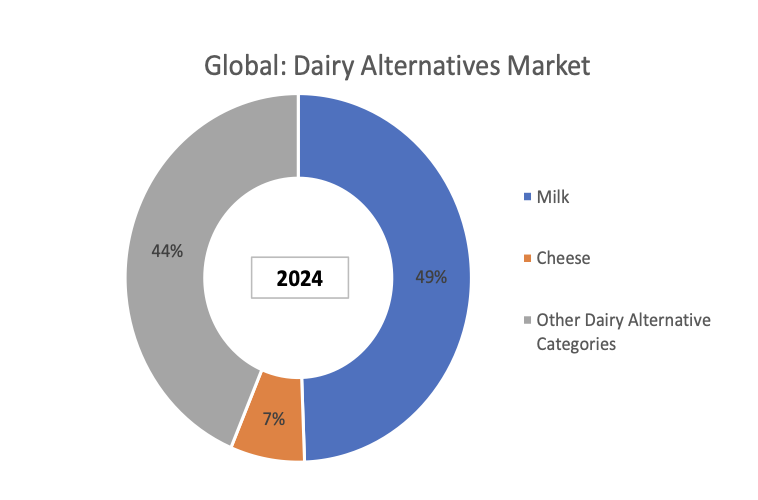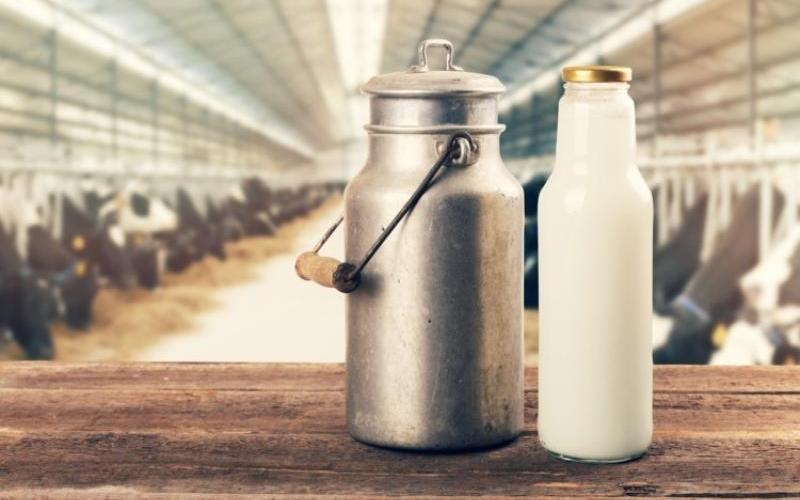Innovative and Sustainable Trends Shaping the Dairy Alternatives Market

These products are increasingly viewed as substitutes for traditional dairy, spurred by growing lactose intolerance rates and rising environmental concerns.
The Rise of Dairy Alternatives
Research by the U.S. National Library of Medicine (2020) reveals that 65% of the global population has reduced lactose digestion, with East Asia experiencing rates as high as 70–100%. This has driven demand for plant-based alternatives, particularly in regions with high lactose intolerance prevalence.
Additionally, industrial dairy production’s environmental impact—significant land and water use, eutrophication, and greenhouse gas emissions—has led companies to position dairy alternatives as eco-friendly, healthful solutions.
Emerging Technologies and Market Growth
Recent advancements, such as cell-based and fermentation-derived dairy, promise to revolutionize the industry by creating animal-free products through bioengineering. Although these innovations face regulatory and scalability hurdles, they represent a growing segment of the $43.6 billion global dairy alternatives market projected by 2028 (MarketsandMarkets report).
Between 2020 and 2022, plant-based milk sales in Europe grew by 20%, while traditional milk sales declined by 9%. This trend suggests that plant-based milk (PBM), which dominates the dairy alternatives market, is increasingly competing with conventional dairy.
Key Players and Product Innovation
Major industry players, including Danone, Blue Diamond Growers, and SunOpta, are heavily investing in research and development. For example, Oatly uses enzymatic processes to replicate the frothing qualities of dairy milk in coffee applications. Similarly, Perfect Day employs precision fermentation to produce animal-free dairy proteins, enabling the creation of products that are molecularly identical to traditional dairy.
The Bel Group’s Cocagne Project, a $9.45 million investment under France’s 2030 initiative, is another notable example. It focuses on developing fermented plant-based cheese, supported by partners like Lallemand Specialty Cultures and Bpifrance.
Sustainability as a Core Strategy
Sustainability remains central to the dairy alternatives market. Companies like Miyoko's Creamery and SunOpta are leading initiatives to reduce carbon footprints, adopt renewable energy, and transition traditional dairy farmers to plant-based agriculture. Danone’s Alpro brand aims for carbon neutrality by 2025, while packaging innovators like NotCo and Ripple Foods focus on reducing plastic waste.
Health and Environmental Benefits
Health awareness and the rising vegan population have accelerated the shift toward dairy alternatives, particularly in the U.S. and U.K. These products not only align with health and weight management goals but also contribute to reducing greenhouse gas emissions. The livestock industry accounts for 18% of global emissions, and plant-based alternatives offer a sustainable solution.
In 2021, The Vegan Society registered over 16,000 products under its trademark, reflecting rapid growth in the vegan market. As environmental and health concerns gain traction, traditional dairy manufacturers are pivoting toward plant-based products, further fueling the market’s expansion.
The Future of Dairy Alternatives
With continued innovation, strategic investments, and a growing consumer base, the dairy alternatives market is poised to redefine the global food industry, offering sustainable and health-forward options for a better future.









